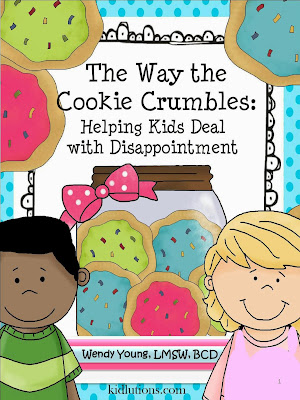Help Your Kids Avoid Summer Brain Drain: 5 Tips for Summer
Summer vacation is right around the corner, which means a few things: sleeping late, lazy days spent in the sun, dips in the lake, barbeques...and unfortunately, "summer brain drain". Who better to write this guest post than Joan Brennan, creator of the award-winning Reading FocusCard (Patent 7,565,759), and a masterful teacher who specializes in reading difficulties. If you haven't heard of the Reading Focus Card, be sure to check it out. It changes lives. Designed to help children, teens and adults with ADHD, dyslexia and other reading difficulties, the Reading Focus Card also benefits those who read a lot, and desire a tool that reduces eye-strain.
Without further ado, I'll let Joan take it away:
Avoiding Summer Brain Drain
It’s often called “summer brain drain” by many teachers. The term describes the loss of learning that occurs in children during the summer break from school, a very real and annual concern for teachers as well as parents. What can parents do to help their children avoid this?
Over the past couple of weeks, I have been talking about this topic with my young students in grades 2 through 5 as the end of the school year has been fast approaching. Some suggestions and resources were also provided for the children and their families.
One bright-eyed, third grader described how he keeps his skills sharp over the summer. Tyler told the class that at the beginning of every summer, his mother purchases a skill-building workbook for his next grade level. She also buys one for each of his brothers, and they work together in their respective books several times each week. It is no surprise that all three children are successful in school. This is just one way of keeping “summer brain drain” at bay.
Other strategies can also promote skill building and retention over the summer. Many of them are available at low or no cost. Just a little effort and forethought might be needed. Here are just a few:
1. Encourage your child to read often. Surround your child with books wherever and whenever possible.
Regular visits to your local public library go a long way in establishing good habits of life-long reading and
learning. These visits can also be great opportunities to spend quality, family time together---and the price is
certainly right!
2. Set aside time each day to read to your child. This will show him that reading is very important to you and
your family. It will also increase a child’s desire to read independently. Consider a “family reading time” for
obvious, additional benefits.
3. Promote reading in the many things you already do with your children. Ask them to read street signs, menus, game directions, cereal boxes, and other items. This will demonstrate that our world provides much
information and opportunities through the reading of words and text. It will also promote independence.
4. Consider providing a journal for your child, a place where she can write about the books she is reading during the summer. You might recommend that she write an alternative ending to a favorite book. Looking back through the journal at the end of the summer will remind her of all the reading she has accomplished in only a few weeks. She will also have improved her critical thinking and writing skills.
5. Do you have a reluctant or struggling reader? You might suggest books (at first) with a few more illustrations and a little less text per page. Another idea to consider: audio books (also available at your local library). If you discover that your child learns best by listening (an auditory learner), this approach will be a very good idea. Share this discovery with your child’s teacher when the fall semester begins. It will be helpful
information for that teacher and invaluable for your child’s future classroom success.
So, you can do much to help your children “stay sharp” over the summer months. Just think ahead, plan, and be prepared to have a wonderful summer of reading together! Next fall, your children will thank you (and so will their teachers)!
Aren't those great ideas? See? I'm telling you, Joan really knows her stuff! Visit her website and her Help for Struggling Readers Blog for more great ideas!
In the spirit of helping your kids avoid brain drain, Joan is offering up a beautiful, hardcover journal for your child (as suggested in #4, above) to use for writing about what she has read or what she is dreaming about. Here's a photo of the lovely journal (so nice that mom might want it...but, remember...it's for the kids)!
Giveaway
 |
| Scrolling Iris Journal by Pepper Pot |
To enter, simply leave a comment below and tell us which tip you will use to help your child this summer. We'll draw one winner from random.org on Friday, June 3, 2011. Good Luck! We have extended this giveaway due to the fact that some folks have had trouble leaving a comment because of browser compatability issues Therefore, if you cannot leave a comment below, please go to our facebook page and leave a comment there, making sure you use the term Brain Drain in your comment. We will pick a winner on Wednesday, June 8th at 7pm EST! THE GIVEAWAY IS NOW CLOSED, SEE OUR WINNER AT THE END OF THIS POST!
For more great ideas, be sure to "like" the Reading Focus Card on facebook. You'll find more fabulous tips, activities and support to get the best out of your child when it comes to reading!
P.S. I couldn't help but notice how the design on the journal matches our blog design. See, Joan thinks of everything! She's cool like that!
OUR WINNER!
At 7:35 pm, on June 8, 2011, we picked number at random.org. That number is "6", which makes Dr. Ann Becker-Schutte or winner! Congratulations, Dr. Ann, and thanks to all of the participants here and on our facebook page!







Comments
And once reading is a joy and not a chore, all else, like journaling will fall in place.
Thanks for another great post!!
We just finished Book 2 in the Peter and the Starcatchers series tonight. They can't wait for the next one! I wouldn't trade this time together for anything in the world.
Thank you for another great post!